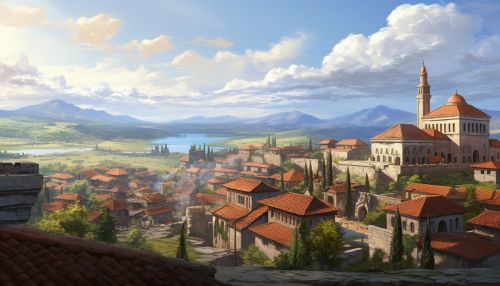Alexander the Great
Early Life
Alexander III of Macedon, commonly known as Alexander the Great, was born in Pella, the ancient capital of Macedon in 356 BC. He was the son of King Philip II and his fourth wife, Olympias, a princess from Epirus. Alexander was educated by the philosopher Aristotle until the age of 16. His education instilled in him a passion for philosophy, medicine, and scientific investigation.


Ascension to the Throne
In 336 BC, Alexander's father, Philip II, was assassinated, and Alexander ascended to the Macedonian throne. He found himself surrounded by enemies and potential rivals for the throne. He quickly eliminated his opponents and any possible threat to his rule. He then set about continuing his father's military expansion plans.
Conquests
Alexander embarked on an unprecedented military campaign through Asia and northeast Africa. By the age of thirty, he had created one of the largest empires in the world, stretching from Greece to Egypt and as far east as India. He was undefeated in battle and is widely considered one of history's most successful military commanders.
Persian Empire
Alexander's most significant military achievement was his conquest of the Persian Empire. He first defeated the Persian forces at the Battle of the Granicus River in 334 BC. He then proceeded to liberate the Greek cities in Asia Minor from Persian rule. By 331 BC, Alexander had defeated the Persian king, Darius III, at the Battle of Gaugamela and taken control of the Persian Empire.
Egypt
In 332 BC, Alexander conquered Egypt. He was welcomed as a liberator and was declared the new "Pharaoh" of Egypt. He founded the city of Alexandria, which would become one of the most important cultural, intellectual, political, and economic centers of the ancient world.
India
Alexander's campaign in India was his last major conquest. Despite facing fierce resistance, he managed to defeat King Porus at the Battle of the Hydaspes River in 326 BC. However, his soldiers, weary from years of continuous campaigning, refused to advance further into India, and Alexander was forced to turn back.
Death and Legacy
Alexander died in Babylon in 323 BC, at the age of 32. The cause of his death remains a mystery, with theories ranging from poisoning to natural causes. After his death, his empire quickly fell apart, but his legacy as a military genius and cultural icon endures to this day.
